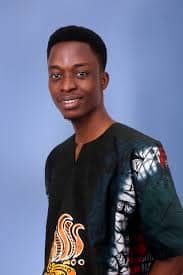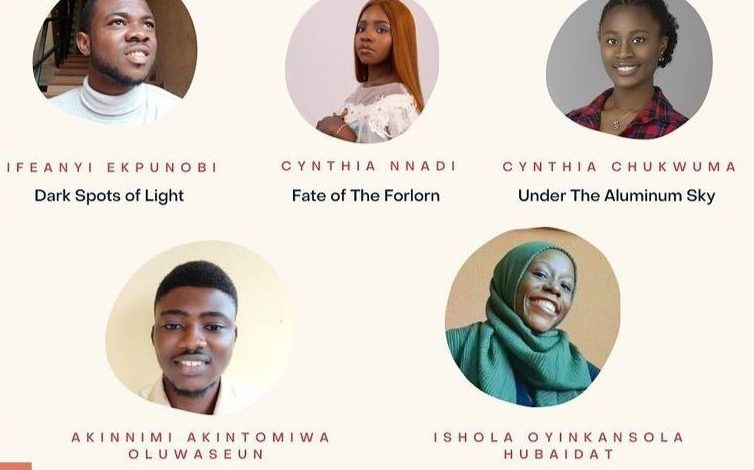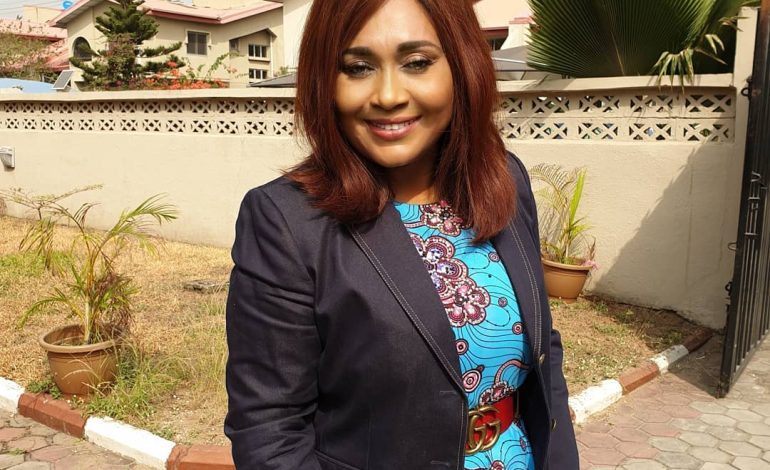World Exclusive: Writers have a duty, moral obligation to unsilence our fears and burdens, says Umukoro

‘State governments can establish an Independent Art Agency that offers grants, others to writers’
The Delta State, Isoko-born poet and winner of the Brunei International Poetry Prize 2021, OTHUKE UMUKORO, is an unassuming young man but one for whom poetry is a calling and he writes with a certain felicity of emotions that belies his age. Reading his poetry is like listening to an orchestra. In this interview with ANOTE AJELUOROU, Umukoro tells what it means to be a writer in a society that is heavily burdened by so many things that have gone wrong
Congratulations on your winning the Brunel International Poetry contest. How did you receive the news of you winning the contest?
THANK you. Joy. I was absolutely overjoyed by the news. I am particularly happy because Brunel has always been a huge dream for me.
Isn’t your collection due for publication? When do you hope to publish your poems for a wider audience?
Three or four years from now maybe. I really can’t say. One thing I know is that I am not going to rush my first full collection. I am going to take all the time in the world to birth it.
You have announced yourself as a poet in a grand way by winning a major prize. What does the future hold for your poetry and writing career?

The reward of hard work, they say, is more work. I might publish a chapbook in the coming years but I have not decided on that yet. I would love to get an MFA in creative writing.
By the way, what do you do for a living when you’re not writing?
I teach English Literature in a private secondary school. I love working with kids. Their energy and hope gives me fresh perspectives on life every time I am around them.
Apart from poetry, what other form of writing do you do and what prospects for it?
I write plays and short stories. I have one published play, Mortuary Encounters. My focus in the past few years has been on poetry. I really love writing plays and I hope to get back to that form soon.
Some critics say that there are no platforms for young writers like yourself. Is this true? If there are, which ones do you recommend for budding writers? What do you recommend to improve the sector?
It’s not true. Thanks to the revolution brought by the internet, writers now have a plethora of online literary magazines where they can submit their works to. I don’t want to recommend any but I spend a lot of time, because of their rich quality, reading works in The New Yorker, POETRY magazine and Poets.org.
There’s a sense of melancholy in your poetry. Why is this?
Melancholy is a fiefdom I naturally wouldn’t want to walk around in. In poetry, you have little control over how the things that burden you spill on the page. In the final analysis, everything depends on the state of your mood as at the time when the pen touched the blank page. The melancholy you observed sprouts from the reality of the world I live in.
Your country is a prominent feature of your poetry in not very flattering terms. For a young writer, this is worrisome, isn’t it?
I don’t think so. I think writers have a duty, maybe even a moral obligation, to unsilence our fears and burdens. To whitewash the worrying situations we currently find ourselves in this land will amount to perfidy in my opinion. Language, for me, offers the opportunity to be truthful and critical. I want my poems to open conversations on issues that otherwise would be ignored.
How can the pessimism you espouse in your poetry be redeemed in your view for the emergence of a better country?
I think the first step is to acknowledge that these wounds exist. Enough of the puppetry and pretension that is at play in our country. One of the major challenges we have in this country is the failure of our leadership to accept real honest criticism. We can’t move forward as a nation if we continue to see every act of criticism as an attempt to sabotage the government. Nigeria has a lot of bright promises and we must come to the table of brotherhood again to discuss how to get to the promised land.
Your poetry is very lyrical and appropriates the song element as metaphor for its realization. Do you also write lyrics, I mean songs set to music?
No, I don’t. I am, however, a lover of music. I grew up with music. My mother is a chorister in her church and she would always serenade our house with music. Growing in an environment like that, I think, contributed to the lyrical taste in my work.
Your experimental poem titled ‘at the poetry workshop one of my students kept on insisting & insisting that the poem’ is a bit of a mouthful. What exactly did you set out to achieve with it? Do you think you succeeded with it? Will you do more of it in future?
The story of Gulnaz (Gulnaz is an Afghan woman and rape victim. She was raped by her cousin’s husband in 2009 and became pregnant. She was then charged with adultery, a crime in Afghanistan. She was initially sentenced to two years in jail, which was later raised to twelve, and she gave birth to a daughter in jail) tore me apart. I remember reading it and crying. Here is a young woman full of dreams and hope that was swallowed by the violence that rides on the back of patriarchy. Writing the poem was really aching for me and I just wanted to forget every damn rule of grammar and bare my pain on the page.
How much of your background influence is in your poetry? Who or what are your models?
I grew up in a lovely home, a home filled with stories. My grandmother, from my maternal side, was a brilliant storyteller. Some of my writing models are Yusef Kumonyakaa, August Wilson, Alice Walker, Harold Pinter, Derek Walcott, Kofi Awoonor, Mary Oliver, IIyaKaminsky, Gbenga Adeoba, Claudia Rankine, Chinua Achebe, etc
How much of your roots in the Niger Delta is in your poetry?
I would say, currently, very little. I am devastated by the deplorable, virulent environmental state caused by the activities of Shell and Chevron in the area. Some of the poems I am currently working on are set against this backdrop.
Delta State Government, through the governor, Mr. Ifeanyi Okowa, sent you a congratulatory message recently for winning the Brunei International Poetry Prize. That must have excited you, didn’t it? But what platforms do you expect the government to put in place to harness abundant youth talent in the state? Or are you satisfied with whatever’s on ground right now?
Absolutely. I was humbled and honoured by the news. I don’t know what is currently on ground in the state. But the government can establish an Independent Art Agency that offers grants to writers, organizes creative readings and workshops, and supports organizations that are promoting the works of writers in the state. This will go a long way in stamping the state’s foot on the literary scene in Nigeria. The state can also organize and publicize annual writing contests that will encourage creative writing among its citizens.
Furthermore, the state can adopt the Poets in the Schools programme where schools in the state, public schools especially, invite a poet every now and then to teach basic condiments (rhyme, imagery, metaphors, style, syntax etc) of poetry and also organize reading workshops in the schools. A programme like this will endear our children to the power of language, encourage reading, and increase self-confidence and critical thinking.



1 Comment
Congratulations to the poet, more power to his pen